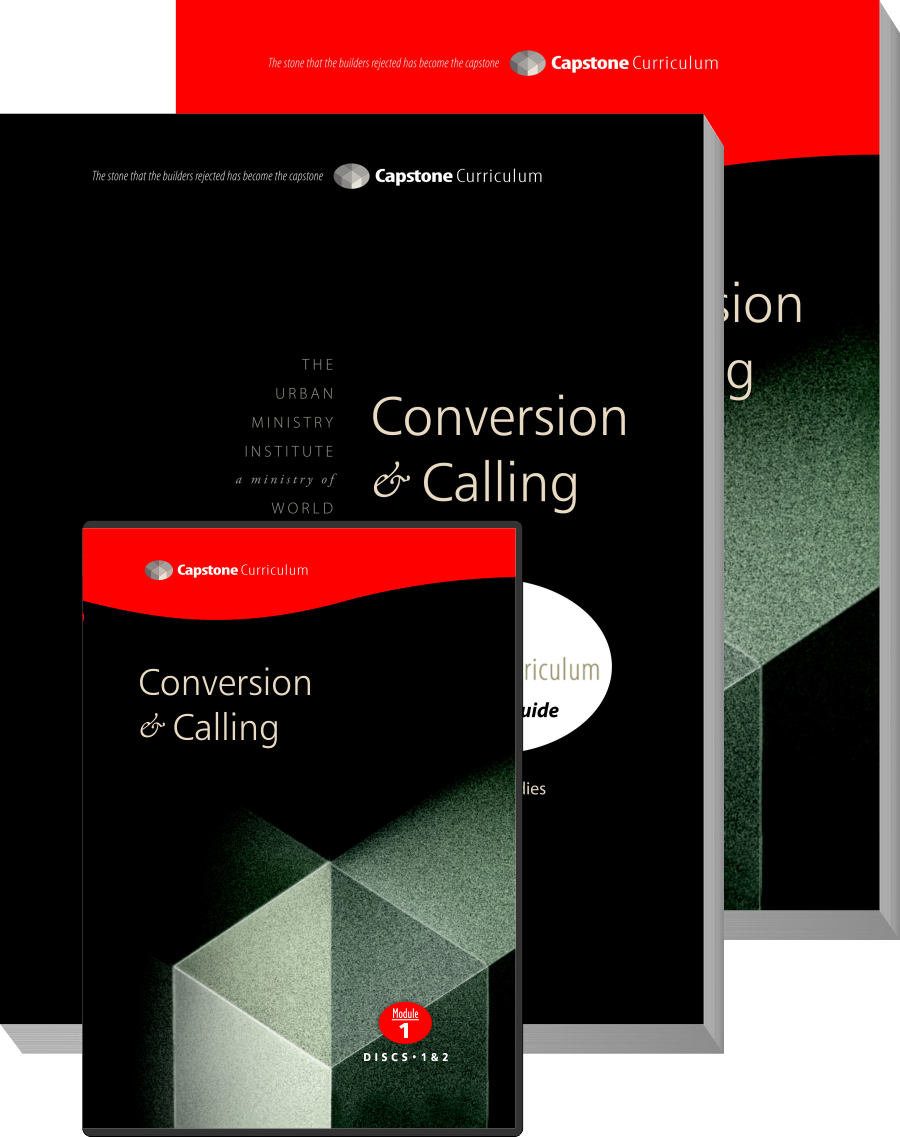 Module 1: Conversion and Calling
Module 1: Conversion and Calling
Without question, the most dynamic spiritual force in the Church is the Spirit-inspired and illumined Word of God, the Holy Scriptures. As disciples of Jesus Christ, we affirm our deep belief in the creative, convicting, converting, and calling power of the Word of God. To understand the wonderful blessing of conversion and calling, we will need to critically evaluate the place of the Word of God in the Church. This module highlights the dynamic power of the Word of God to both convert the lost, and secure the called into the full will of God. We begin with a discussion of how the Bible understands itself to be in fact the very Word of God, inspired by the “breath of God,” the Holy Spirit. Through his ministry through the Holy Scriptures, we understand that the Word of God plays a pivotal role in the regeneration of the lost person; through the Word, the Spirit convicts the world of sin, righteousness, and judgment. The Word of God coverts us; it is a word that brings new life, and that is synonymous with the Gospel of Jesus. It is the Word which causes us to be "born again," to experience the washing of regeneration, and renewal of the Holy Spirit, producing in those who believe very concrete signs of God's renewing power. Finally, we will see how this Word calls us out of darkness into new life in Christ. We will explore the concept of (metanoia), that is, repentance toward God, and to faith (pistis). The Word of God produces faith in Jesus Christ, the Lord and Savior who saves, delivers, and rescues the believer from the penalty, power, and presence of sin.
Course Details
Lesson 1: The Word that Creates
Lesson 2: The Word that Convicts
Lesson 3: The Word that Converts
Lesson 4: The Word that Calls
Format
Mentor Guide: 261 pages in a three-ring binder
Sudent Workbook: 161 page book
DVD Set: approximately four hours of video
Title Page |Instructor | Copyright
Module Description
Conversion and Calling
As disciples of Jesus Christ, we affirm our deep belief in the creative, convicting, converting, and calling power of the Word of God. To understand the wonderful blessing of conversion and calling, we will need to critically evaluate the place of the Word of God in the Church.
Required Textbooks
The Capstone Curriculum
Capstone Curriculum is a 16-module training program, taught at a seminary level, which we specifically designed to serve as the most essential knowledge and skill learning necessary for effective urban ministry. Each module (course) comes with a Mentor’s Guide, a Student Workbook and two DVD’s (four hours of video).
![]() Each module also has required textbooks, and this graphic is linked to the reading assignments associated with those textbooks for that specific module.
Each module also has required textbooks, and this graphic is linked to the reading assignments associated with those textbooks for that specific module.
![]() Some modules have Suggested Readings that would enhance student learning. While these are not required assignments, they are included for further study if your students are interested.
Some modules have Suggested Readings that would enhance student learning. While these are not required assignments, they are included for further study if your students are interested.
![]() All of our Capstone Student Workbooks (English and Spanish) are available on Kindle and is a handy complement to your Capstone Students Softcover Workbook; the accessibility of the digital editions will be a lifetime resource for sermon preparation, Bible Study, and theological research. We are also seeking to make all of our required textbooks available on Kindle. If a book is available on Kindle, it will be linked to this icon in the book's description.
All of our Capstone Student Workbooks (English and Spanish) are available on Kindle and is a handy complement to your Capstone Students Softcover Workbook; the accessibility of the digital editions will be a lifetime resource for sermon preparation, Bible Study, and theological research. We are also seeking to make all of our required textbooks available on Kindle. If a book is available on Kindle, it will be linked to this icon in the book's description.
![]() A few textbooks are also available as audio books. The books that are will have this linked icon in its description as well.
A few textbooks are also available as audio books. The books that are will have this linked icon in its description as well.
![]() Two Capstone modules (Module 5: Bible Interpretation and Module 11: Practicing Christian Leadership) have reference texts that are phenomenal resources for any pastor or leader. This icon will alert you to those texts.
Two Capstone modules (Module 5: Bible Interpretation and Module 11: Practicing Christian Leadership) have reference texts that are phenomenal resources for any pastor or leader. This icon will alert you to those texts.
Reading Assignments
Reading Assignments
Each Capstone module has assigned textbooks which are read and discussed through the course. We encourage students to read, reflect upon, and respond to these with their professors, mentors, and fellow learners. Because of the fluidity of the texts (i.e., books going out of print), the required textbooks list will be different from what is listed in your Capstone Curriculum workbook. The textbooks list with each module is the OFFICIAL Capstone required textbook list.
![]()
Students: Part of our coursework requires that you purchase, read, and reflect upon the textbook(s) for the course. The assignment is to read each required textbook and write a precis (concise summary) of its main point, as you see it. Please summarize its major theme and argument, and then give your concise evaluation for each reading. Although the Student Workbook only shows space for two readings, the student must write a summary for each reading by using the back of the form. It is of utmost importance to us for our students to analyze a text, that is, to read it, understand its thesis (main point), articulate its argument in a respectful way (whether you agree with the author or not), and then respond as to why you agree or disagree with the thesis. This practice helps strengthen your ability to engage different opinions in a respectful way, and learn to listen to others and respond with clarity and respect. In this way, you learn to dialogue with and discuss with others whose beliefs are different than your own.
Mentors: The reading assignments below are keyed specifically to the lesson format of this module. Please note that, depending on how you are structuring your course sessions, you have complete flexibility to break up the reading assignments to match your actual class sessions. In other words, if you are running an eight week course, simply break up the reading assignments to match your sessions (see Appendix 8 in For the Next Generation, TUMI Mentor Manual for sample course schedule options). What is critical is that you focus on the lesson as the basic unit of teaching in your Capstone courses.
-
Lesson 1: Reading Assignments
By the conclusion of this lesson, you should have read the following:
- Erickson, Introducing Christian Doctrine, 2nd Edition Chapters 4-5.; 3rd Edition Chapters 3-4
Geisler, To Understand the Bible Look for Jesus, Chapters 1-2.
Packer, God Has Spoken: Revelation and the Bible, Chapters 1-2.
-
Lesson 2: Reading Assignments
By the conclusion of this lesson, you should have read the following:
- Erickson, Introducing Christian Doctrine, 2nd Edition Chapters 6-7; 3rd Edition Chapters 5-6.
Geisler, To Understand the Bible Look for Jesus, Chapters 3-4.
Packer, God Has Spoken: Revelation and the Bible, Chapters 3-4
-
Lesson 3: Reading Assignments
By the conclusion of this lesson, you should have read the following:
- Erickson, Introducing Christian Doctrine, 2nd Edition Chapters 33-34; 3rd Edition Chapters 33-34.
Geisler, To Understand the Bible Look for Jesus, Chapters 5-6.
Packer, God Has Spoken: Revelation and the Bible, 5-6.
- 1
Kindle
Capstone is also available on Kindle and is a handy complement to your Capstone Students Softcover Workbook; the accessibility of the digital editions will be a lifetime resource for sermon preparation, Bible Study, and theological research.
Go to TUMIStore
Return to Capstone Summary Page
